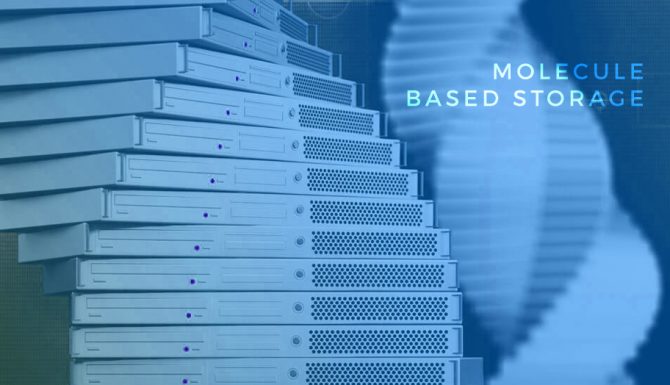Researchers have come up with a new way of storing data in molecules without using energy, said a Harvard University study. Scholar Brian Cafferty wrote a paper predicting that this method can store the entire collection of the New York Public Library into “teaspoon of protein.”
Cafferty developed the new technique in collaboration with Milan Mrksich and his research group from Northwestern University. According to the Harvard Department of Chemistry and Chemical Biology, this option is offline and does not require energy. It also has the potential to store data “for millions of years.”
The group chose to use oligopeptides, which are known to be stable, common and small. These are also easily distinguishable even when jumbled with one another.

A supplement to existing storage
This chemical method is considered a viable supplement to existing options such as physical, cloud and DNA storage. However, the researchers see it as a complementary tool to aid the method of storing info in synthetic DNA.
Cafferty noted that the group strived to develop an option that does not derive from existing biological methods. Instead, they worked to find a way to use organic and analytical chemistry. This way, they came up with an approach that utilizes molecules with low molecular weight.
The team used synthesis to create the right number of molecules, allowing them to write several video files at one go. Cafferty also emphasized that this is a much cheaper and less laborious option as compared to DNA-based storage.
The need for biology-based storage options
The Harvard study pointed out the necessity for developing such new storage options. According to the study, currently available technologies pose several setbacks. This includes vulnerabilities, destruction, and corruption.
Cloud computing and data storing is deemed unreliable as it depends on the internet and supply of energy. It is also “hackable” and potentially limited, especially in the future.
Even the already innovative DNA-based option has disadvantages, said Cafferty. DNA is relatively bigger than the molecules the team used. Moreover, the process of writing information on the strands calls for skill and expertise, as well as intense labor.
Cafferty and the group have succeeded in encoding, storing and retrieving a video recording and several photos. The study reported that the writing speed is 8 bits per second, while reading is 20 bits per second. The retrieval of these files was deemed 99.9% accurate.
















